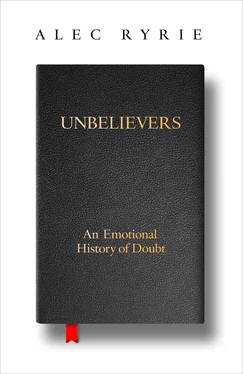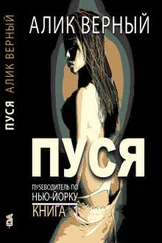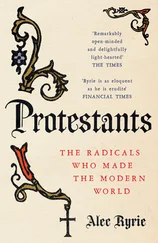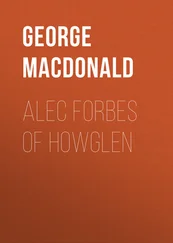I do not mean that these incidents were trivial: quite the reverse. Amateur theological speculation was a minority activity in the Middle Ages, but resentment of priests was a sport for all. Historians disagree over how widespread ‘anticlericalism’ was in medieval Europe, but everyday life certainly offered plenty of potential points of friction between priests and common people: from the gathering of tithes, fees and offerings, to the imposition of tedious moral and ritual constraints. Any priest who found himself at odds with an awkward parishioner might naturally fall back on his authority as God’s representative, forcing the parishioner either to give way, or to enlarge his quarrel to include God. A dispute over a few pence or an illicit pat of butter in Lent could very quickly escalate into something much more serious.
In practice, one issue above all tended to trigger these escalations: the medieval clergy’s most visible and most outrageous claim to spiritual authority. In the Mass, every priest presided at a daily miracle, in which bread and wine were wholly but undetectably transformed into the literal substance of Christ’s body and blood. The reason the Western Church formally defined this doctrine of transubstantiation in 1215 was that dissident groups were questioning it. Thereafter the sacrament of unity became a shibboleth, dividing those who could and could not embrace this hard teaching. Transubstantiation made sense in Aristotelian philosophical terms, but it was always counterintuitive, and only became more so as philosophy moved on during the later Middle Ages. Hence the procession of medieval miracle stories in which unbelievers suddenly saw the ritual at the altar as it ‘truly’ was: a broken human body, a blood-filled chalice. In the stories, these visions were typically judgements on unbelief rather than rewards for faith. In the earliest and best known of them, Pope Gregory the Great prayed for the gory truth to be shown to a woman who laughed at the thought that bread she herself had baked could be Christ’s body. Invariably, these doubters begged for the dreadful vision to be hidden from them again.
The Church, in other words, did not downplay the difficulty of believing in the sacrament. It revelled in it. The reason Christ’s body looked, felt and tasted like bread, according to the encyclopaedic medieval theologian Peter Lombard, was ‘so that faith may obtain its merit’. Believing was meant to be hard. Stories of bloody visions did not settle doubts so much as tease hearers with a certainty they could not have, rubbing their noses in the incongruous and glorious truth that their incredulous hearts were commanded to embrace.[12] Denials of this miracle were not unthinkable: they were necessary. Every Doubting Thomas story needs a sceptic.
Doubting transubstantiation was hardly exclusive to atheists. It was a point on which Jews, Muslims and Christian dissidents of various kinds could all agree. The Inquisition’s chief purpose was to hunt for heretics, not unbelievers. Yet their dragnets did not discriminate. Some of their catch were not members of any organised or coherent heretical group, but seemed to represent distinctive, sceptical traditions – or simply to be speaking for themselves. When the bishop of Worcester interrogated a heresy suspect named Thomas Semer in 1448, for example, he was looking for so-called Lollards, members of an English sect who disparaged priests’ status and traditional ceremonies. It quickly became clear, however, that Semer was something different. He not only denied transubstantiation, as the Lollards did, but dismissed the Mass entirely as an empty ritual. He rejected the Bible – which Lollards venerated – as a cynical tool of social control: ‘a set of prescriptions for human behaviour of human devising to keep the peace’. He claimed that Jesus Christ was simply the natural son of Mary and Joseph. At a second interrogation, Semer claimed that paganism was better than Christianity, and that everyday life proved that the devil was stronger than God. Unlike most Lollards, he persisted in his denials until he was executed by burning.[13] What we cannot know is to what extent this kind of scepticism was an ever-present feature of medieval religion’s sea floor, only stirred up by trawling inquisitors; and to what extent it specifically flourished in those corners of the ocean which were filled with heretical variety and therefore attracted the inquisitors’ attention.
Another of Semer’s shocking denials provides an important clue: he rejected any notion of the soul, of Heaven or of Hell. Wherever we find serious unbelief in medieval or early modern Europe, we find this ‘mortalist’ claim – that dead means dead, end of story. Mortalism is entirely compatible with belief in a God, but it was more than just an attack on a specific Christian (and Jewish, and Muslim)[14] doctrine. Medieval and early modern Christianity was intensely focused on salvation, the last judgement and the state of the dead. Strip that out, and while you might still have a rather abstract God, you have precious little religion. In theory, mortalism is not atheism. In practice, it might as well be.
So we find, for example, Jacopo Fiammenghi, an elderly Italian monk whose decades of debauchery, fraud and intimidation finally caught up with him in 1299. Witnesses accused him of saying that ‘there was not another world, neither heaven nor hell, but only this world’. When asked about his soul, anima , he replied, ‘a peach has an anima ’ – the same word meant the fruit’s stone. An Englishman named Thomas Tailour confessed in 1491 to believing ‘that when a man or woman dieth in body, then [he] also dieth in soul; for as the light of a candle is put out … so the soul is quenched by the death of the body’.[15] A slightly later preacher’s anecdote picked up the same vivid image. In this story, a believer and an ‘atheist’ fall to arguing over the nature of the soul:
The Atheist said: I will show you what it is. So he caused a candle to be lighted and brought to the table; he blew it out, and said: your soul is no more than the flame of that candle … It is blown out, and so shall it be with your soul when you die.
Medieval churchmen certainly believed that mortalism was enough of a problem to need regular denunciation.[16]
So we have anger with God, hatred for priests, rejection of transubstantiation, scepticism about life after death. What does it all add up to? Medieval inquisitors, who liked their heresies neatly classified, had a ready label to hand: Epicureanism. The ancient philosopher Epicurus, whose name is now associated with pleasure-seeking, was notorious in the Middle Ages both for his mortalism and for his strictly naturalistic account of the universe. If the gods existed in this worldview, they were little more than a curiosity. Dante put heretics in the sixth circle of Hell, but he named only one actual sect: the Epicureans, ‘who with the body make the spirit die’, and who are therefore condemned to lie for ever in opened tombs, unwillingly immortal. (Emperor Frederick II was among them.) Dante singled the Epicureans out, one near-contemporary reader claimed, because they are ‘a sect which seems to have more followers than others’.[17]
In fact there is no evidence that this was a ‘sect’ with ‘followers’ at all. Frederick II, Jacopo Fiammenghi and Thomas Tailour did not all belong to some hidden, counter-cultural tradition. Most of the unbelieving voices we can recover sound as if they were isolated individuals working matters out for themselves, using everyday analogies. To take a slippery example: we do not need to believe the wild accusations of heresy flung at Pope Boniface VIII by his enemies in 1303 to recognise the kind of picture that was being painted. The pope supposedly mocked any notion of resurrection in bluntly rationalistic terms, telling believers to go and look at a graveyard: ‘When is your grandmother coming back to tell us about the other world?’ Were all the bones of the dead seriously going to be gathered for the general resurrection? Pointing to the bird on his dinner plate, he allegedly told his companion, ‘you have no more soul than this capon’.[18] Whether dreamed up by the pope himself or by an imaginative accuser, none of these claims suggest intellectual influences. Some insights – that the world is flat, that dead is dead, that bread is bread – simply thrust themselves onto the mind with or without a tradition behind them.[19] Medieval Europeans respected inherited authority, but they could also think for themselves. The conundrum that our lives feel as if they mean something, while the world looks as if it means nothing, confronted them as it confronts us all. Like us all, they found their own solutions as best they could.
Читать дальше












